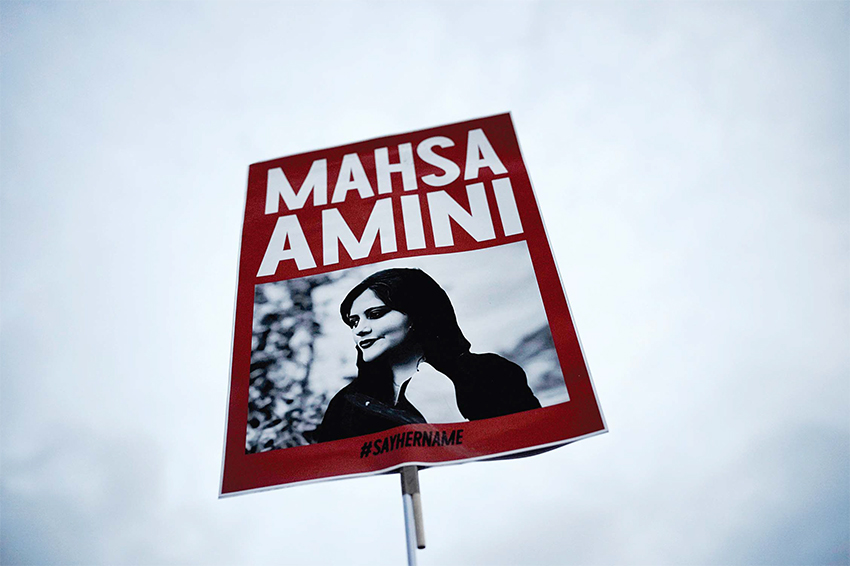10/12/2023
10/12/2023
DUBAI, United Arab Emirates (AP) — Iranian authorities banned members of the late Mahsa Amini’s family from traveling to accept the European Union’s top human rights prize on her behalf, a civil rights monitor reported. Amini’s death while in police custody in 2022 sparked nationwide protests that rocked the Islamic Republic. The U.S.-based HRANA said late Saturday that authorities have refused to allow Amini’s father, Amjad, and two of her brothers to fly out to Strasbourg, France, to receive the Sakharov Prize for Freedom of Thought. Reports said only the family’s lawyer, Saleh Nikbakht, would be able to travel to be handed the award on their behalf.

The EU award, named for Soviet dissident and Nobel Peace Prize laureate Andrei Sakharov, was created in 1988 to honor individuals or groups who defend human rights and fundamental freedoms. It is “the highest tribute paid by the European Union to human rights work,” as per the EU Parliament website. Earlier in September, Mahsa Amini was granted the prize.
The 22-year-old Kurdish-Iranin woman died after Iran’s morality police arrested her for allegedly violating the country’s strict headscarf law that forced women to cover their hair and entire bodies. Her death led to massive protests that quickly escalated into calls to overthrow Iran’s clerical rulers. Iranian women, furious over Amini’s death, played a pivotal role in the protests, with some opting to go without their mandatory headscarves. Authorities immediately launched a heavy crackdown, in which over 500 people were killed and nearly 20,000 arrested, according to human rights activists in Iran. Authorities have said many of those detained were released or given reduced sentences. The protests largely died down earlier this year.


